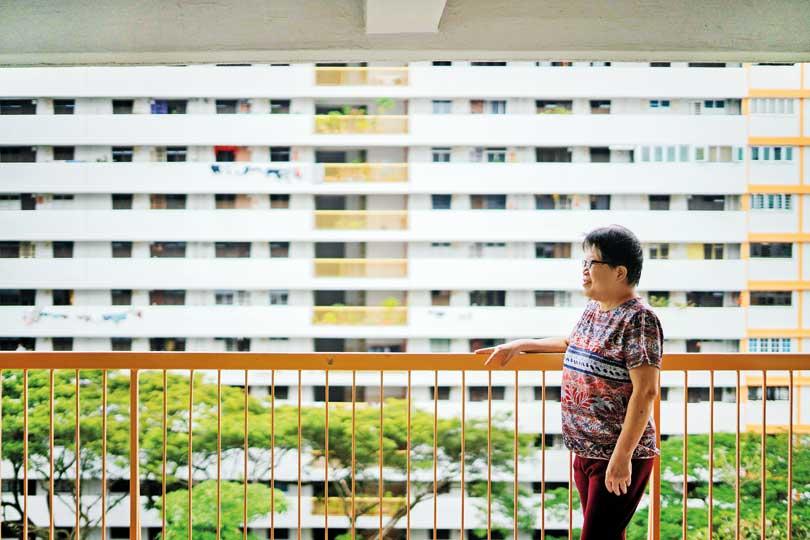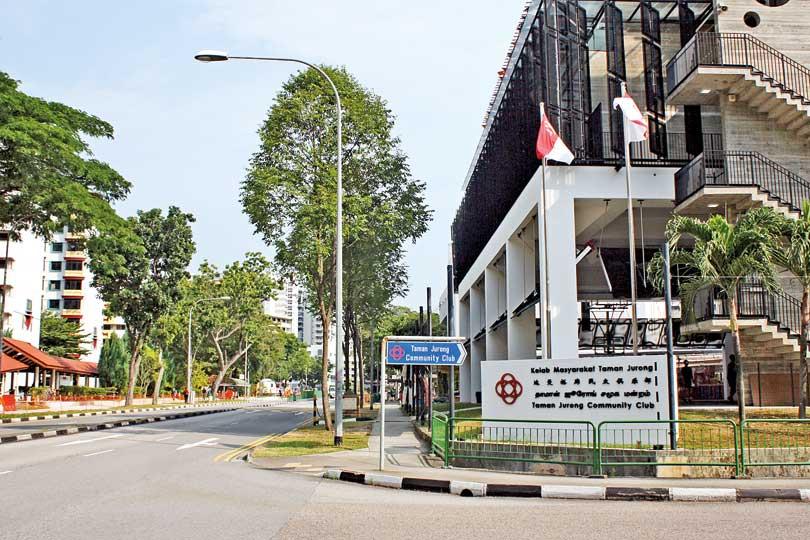Reply To:
Name - Reply Comment
Last Updated : 2024-04-25 20:04:00

 Comparisons of Singapore and Sri Lanka have now become a tiresome, threadbare argument. Sri Lanka needs its own model, many argue. But how the Southeastern city-state has woven a unique, diverse and inclusive social fabric is still exemplary.
Comparisons of Singapore and Sri Lanka have now become a tiresome, threadbare argument. Sri Lanka needs its own model, many argue. But how the Southeastern city-state has woven a unique, diverse and inclusive social fabric is still exemplary.
In the 1960s, Singapore suffered a critical housing shortage. Tasked with providing sanitary living conditions to replace slums and squatter settlements, the country’s leaders had a clear vision of providing affordable and dignified housing for all. From being identified as a “disgrace to a civilised community,” in a 1947 British Housing Committee Report which noted Singapore as one of the world’s worst slums, the country has today transformed itself into one of the most developed in the world.
The age-old adage ‘good fences make good neighbours’ speaks of establishing boundaries between neighbours, helping both parties know how to act and respect each other. In Singapore, the government makes fences in the form of an exemplary public housing scheme, guaranteeing good neighbours for every member of the estate. The Housing and Development Board (HDB) is Singapore’s public housing authority which has managed to house an entire nation. It is a matter of national pride that over 80% of the country’s resident population lives in public housing – How? Because HDB is not merely a developer or master planner; it also plays a pivotal social role.
For a Sri Lankan in Singapore, the government’s interventionist approach may at times feel stifling
In 1989, Singapore’s then minister for national development implemented the ‘Ethnic Integration Policy’ to promote racial integration and harmony among HDB estates. He pointed out that neighborhoods in Bedok and Tampines housing estates had Malay households making up to more than 30 percent of the estate population while Hougang had more than 90 percent of households occupied by Chinese. This sense of growing communal clustering was not ideal and the government announced plans to maintain ethnic balance as a means to foster social and racial cohesion. Thus began the practice of ensuring a balanced mix of various ethnic communities in HDB towns.
For a majority of Sri Lankans, such a prescriptive quota paired with high-rise living is less than ideal, where dozens of people live in proximity. It demands tolerance, patience and above all, a need for harmony. And for a Sri Lankan in Singapore, the government’s interventionist approach may at times feel stifling, but one Singaporean tells us why this system works.
Muhammad Faizan Bin Othman is the Chairman of Taman Jurong Inter-religious and Racial Confidence Circle (IRCC), a community body which serves as the local-level interfaith platforms under the community engagement programme of the Culture, Community and Youth Ministry. Having been a community leader for over ten years, Mr. Othman trusts the system to ensure harmony in his estate.
“I’m in just one of the 80 odd IRCCs in Singapore. But the work we do to promote multi-racial and multi-religious living along with inter-racial and inter-religious events is vital. We try to make people go out of their houses and join us in promoting harmony,” he said offering the simplest explanation to his work. Each HDB housing estate has a community club which appoints a committee consisting of 15 members. “They are made up of people who are very active in their places of worship. In this particular area, we have two churches, one mosque and one temple. We meet once in every two months and discuss issues that are current, and affect the relationships among different groups of people,” Othman said.

Taman Jurong Community Club
Why it works is because community leaders are familiar with the issues of their community. “We hear on the ground whether or not any disturbance takes place. There are small disturbances that may lead to a bigger fire. I have been doing this for more than 10 years but it’s only one part of the job that we do,” he opined. “All of us are volunteers. For the most part, what we do is organise events such as dialogue and events such as visits to places of worship. If we organise a visit to the mosque, everyone comes along, whether you are a Muslim, Christian, Buddhist or a free-thinker.”
Singaporeans have increasingly participated in such community-building efforts. According to a recently released study by the Institute of Policy Studies in Singapore, a majority of Singaporeans are aware of the seriousness of race and religious issues and feel the government has done enough to manage these divisions. Most respondents (72.7 percent) felt people of different religious backgrounds could get along when living in close proximity, indicating strong support for inter-religious harmony – Muslims and Christians were more likely to feel this way. In the case of perceptions of people of different religious backgrounds, respondents were more likely to view Christians, Buddhists and atheists the most positively. There was a small group (15.6 percent) of respondents who expressed that Muslims were threatening,” wrote IPS Senior Research Fellow Mathew Mathews, Research Associate Leonard Lim and Research Assistant Shanthini Selvarajan.
Mr. Othman believes interventions are important in building the Singaporean identity.
“We organise dialogues where there is always a central theme. For instance, we did something on weddings. Different religious groups explained the significance of weddings. There was also dialogue on death. We get different perspectives on what people from different religions think about death. We may be thinking of our own religion, but it’s a very good opportunity for us to understand what people from different religions think about death,” he explained.
Living in high-rise buildings comes with its own set of challenges. Although it’s more or less peaceful, there are pockets of issues, Mr. Othman noted. “If it is a case by which they are of different religious and ethnic groups, that’s when IRCCs have to come in.”
“There was once a Hindu family that used to burn incense as a ritual but the smoke goes into a Malay family household and they were not very happy. It triggered a series of unfriendly encounters, up to a point that one of the families complained to the town council that they should not be allowed to burn incense,” Mr. Othman recalled.
“They were not talking to each other, they would take different paths, but they would stay side by side as neighbours. So the town council requested us to come in. We spoke to them separately. Eventually, they came for a meeting and we explained to them that, as neighbours, it was better to live harmoniously than living in such a hostile environment. We requested for solutions from them, instead of us giving them a solution. So there was a give and take, lah! On the last day of the meeting, they came separately, but went back together,” he said.
Studies also noted that, vigorous State intervention to combat social divides could be seen in the area of religion, where a range of hard and soft legislation like the Internal Security Act, Maintenance of Religious Harmony Act and Inter-Racial and Religious Confidence Circles had prevented potential discord and wider conflict. This, Mr. Othman, agrees with.
One important aspect as to why we are like this is really because of the intervention by the government. If you leave it as it is, we will tend to gravitate towards socially-mingling with our own kind - - Muhammad Faizal Bin Othman
“One important aspect as to why we are like this is really because of the intervention by the government. If you leave it as it is, we will tend to gravitate towards socially-mingling with our own kind, unless there is some form of intervention,” he opined.
Similar to Sri Lanka’s Mediation Councils, Community Clubs and IRCCs are instrumental in intervening in neighbourly disputes and a host of other social issues. However, these government agencies are not alone in solving society’s issues. “Every now and then, the Internal Security Department will say that so and so has been arrested because of a certain incident. The Religious Rehabilitation Group (RRG) made up of Muslim religious teachers then come into the frame to engage in counselling activities for those concerned. That’s one of the groups that help these individuals who have gone astray,” he explained.
“In one such incident, a Singaporean was placed under restriction order for supporting her husband’s intention to take up arms in Syria. However, the family members who took note of their extremist views soon alerted their respective community leaders,” Mr. Othman said.
“It’s important for all of us to be vigilant and look out for signs, even though they are our family members. The big, bad consequences can be very large if you don’t report it. If you see someone going into their wayward ways, being radicalised – which in Islam is really wrong – you must counsel. If you can’t, then you must report it to the authorities for the good of everyone,” he asserted.
The writer was a participant in the Asia Journalism Fellowship, a programme of Temasek Foundation and the Institute of Policy Studies in Singapore.

Add comment
Comments will be edited (grammar, spelling and slang) and authorized at the discretion of Daily Mirror online. The website also has the right not to publish selected comments.
Reply To:
Name - Reply Comment
US authorities are currently reviewing the manifest of every cargo aboard MV
On March 26, a couple arriving from Thailand was arrested with 88 live animal
According to villagers from Naula-Moragolla out of 105 families 80 can afford
Is the situation in Sri Lanka so grim that locals harbour hope that they coul